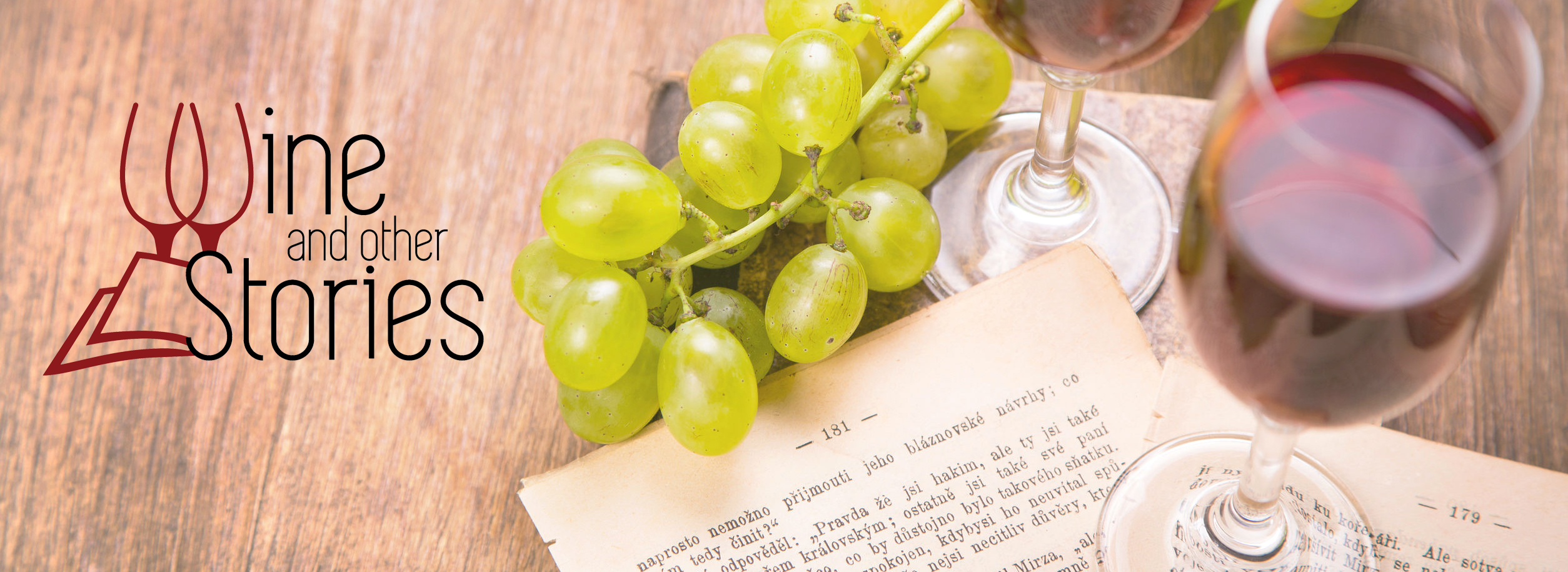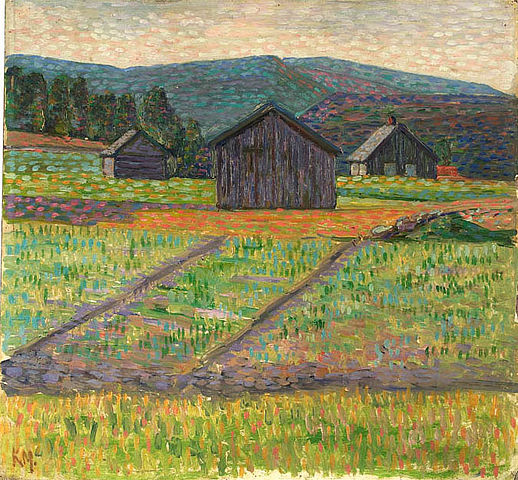A sip of a natural wine from Puglia evoked long buried memories. My reflections on natural wine and what it represents in our modern society
One of the great powers of wine is to evoke memories. In that regard, wine is more similar to art than any other agricultural product. Interesting wines tell a story. It can be a story about a place or people. Or even a fond memory from your past.
This is exactly what happened to me a few days ago. I was in my local wine shop – Bottle Apostle – which due to having Enomatics, always has a few wines available to try. After fetching a glass, I poured a tasting of a natural orange wine from Puglia, my homeland. From the instant my nose reached the glass rim, I was teleported to a different time – a few decades in the past.
A leap into my childhood
It’s Sunday and my family is partaking in our traditional weekly lunch. My parents, grandparents, my brother and me are gathered at our family home. Huge portions of pasta are passed around. The table is simply and rustically adorned (my mother has always cared much more about substance than appearance). As always, my granddad had brought his bottle of wine. A straw-hued hazy liquid in an ordinary green bottle with no label or embellishment. A worn plastic crown cap seals the bottle. Granddad would say, in local dialect (the only language he has ever been able to speak): <<This is good wine, made with real grapes… my friends made it!>>. Usually the statement was followed by obscure references to people he knew and places where they used to live.
My granddad has always been a strong and fascinating figure. A man from another world. A world where children started to work in the fields at the age of six (as he did). Where education was a whim for rich people and where all things worth consideration happened at the farm. Days started at 4am. God knows how knackered people would have been travelling home from the fields on the butt of a mule with soil underneath their fingernails. If you were born in such a world, before the bombings of a World War, the appearance of cars, television and computers… If you were born in such a world – like my granddad was – you would probably look with suspicion anything that came out of a modern shop or supermarket.

My granddad’s wine
That’s why, for my granddad, that simple-made amatorial wine was the only thing to be trusted. <<Made with real grapes>> he rumbled, suggesting (not so covertly) that all other “industrial” wines were made with some kind of artifice, some powders that magically turned water into plonk.
The wines that my granddad used to get from his friends had a straw, almost ginger-like, hue. Cloudy as heck, and I know why now… It was totally unfiltered. I’m pretty sure that it was not a stylistic decision. My granddad’s friends simply didn’t know that wine needs (or does it?) filtration and clarification to be palatable to the public. The taste of that wine was rustic, simple, unorthodox, but also fresh and alive. As far as I can remember (some twenty years have passed), the wine had flavours of bitter orange, ripe pear, white cherry and a grapey quality. Everything in that wine seemed genuine and unadulterated – though a bit “crude”. It was as if the farmer, in one swift move, had chopped a few ripe grape bunches from the vine, squeezed them and fermented the must in his bare hands. The quintessential farmer’s wine. Does this description sound familiar to a natural wine lover?
The start of a journey
I think it’s fair to say that it is my granddad that was responsible for starting my love affair with wine. Now I can worship a sip of Sassicaia or a fine Bordeaux, but that was not the wine I was brought up with.
To be honest, I’m very glad it was my granddad, with his home-made funky wine, who initiated me into the marvellous wine mystery. Not for the qualities or aromas of that rustic wine, but rather for what it represented. My granddad’s wine was a genuine product of farmers. A wine to share among friends and family members. A beverage that, far from sophistications and pompousness, was the expression of a territory and of the people that sweated and worked on that land. In such a dimension, wine is a symbol of a lifestyle. An existential condition created by the convergence of several factors: the land, its products, the local people and their traditions. Wine is just the liquid extension of all these elements, a perfect poliamorous marriage where the total is greater than the sum of its parts.
In this regard, what better adjective than “natural” can define such a wine? However, I will take a step back and attempt a more precise definition of “natural wine”.
What is natural wine?
The term “natural wine” is one of the most elusive concepts in the modern wine world. Unlike expressions like “organic” or “biodynamic”, there is no universally accepted definition. The words “natural wine” have no legal status. Furthermore, there is no organisation that can certify if a particular wine can be defined as natural.

Most adopters define a wine as “natural” if it has been made without artificially adding or removing anything in either the vineyard or the cellar. This approach normally encompasses practices such as:
- the avoidance of pesticides and other chemicals
- manual harvest
- exclusive use of wild yeasts
- lack of filtration or other clarification techniques (apart from very gentle and non-intrusive ones)
- no chemical interventions during winemaking
- little to no addition of sulphur dioxide
Natural wine: real or hoax?
Since there is no legal definition of what constitutes a “natural” wine, producers may follow all or some of the aforementioned guidelines. They may even carry out practices other than those I have listed and still define their product as “natural”. Nowadays “natural wine” is pretty much a self-appointed title that anyone can use.
Unsurprisingly, natural wine is one of the most divisive topics in the wine community. Some people strenuously defend its principles, going as far as to say that natural wines are the only ones that can truly express terroir and are worth drinking. On the other end of the spectrum, natural wine detractors label the entire movement as fraudulent and its supporters, a bunch of delusional hipsters.
My experience suggests that natural wine is a complex and multi-dimensional phenomenon. The hype is not completely detached from fashion and trends. After all, its supporters include media personalities such as Kourtney Kardashian. Nonetheless I do recognise that there are winemakers that take the natural approach very seriously (and from what I can see) genuinely believe in it. I tasted natural wines by Frank Cornelissen and COS (both from Sicily), La Stoppa (Emilia-Romagna, Italy), Sepp & Maria Muster (Austria) and Guerila (Slovenia). I found them all outstanding.
Not a new phenomenon
The natural wine movement originated in France in the 1960s, but came into vogue only in the last decade. Even though the natural movement might be trendy right now, people have been fermenting grape juice without adding chemicals for millennia. Some might argue that the modern method of producing wine is by far the more recent phenomenon.

Even though they didn’t know it, my granddad’s friends were producing natural wine. Of course their wines weren’t as clean as most of today’s wines. Those farmers didn’t have a clue about extended maceration, nor how to gently filter a wine to get rid of its sediments. They didn’t add any sulphites or other chemicals. In fact there was no need for such additives. These bottles of “fresh wines” were meant to be consumed in a few days, at worst a couple of weeks.
Thirty years later, a sip of wine defined as “natural” conjured the memory of that rustic, fresh wine my granddad used to bring to our Sunday lunches. While I savoured that wine here in London, in a completely different time and place, my mind started to wander. I found asking myself why so many people love natural wines.
Some wine critics suggest that the natural wine movement began as a reaction to the manipulated “blockbuster” wines (over-oaked, over-extracted, high in alcohol, big and exuberant) celebrated in the 1980s and 1990s by Robert Parker and the like. But there is another reason. Large-scale winemaking had turned wine into an industrial product, with the focus being on volume and consistency. Perhaps at the expense of health and environmental considerations. Natural wines present themselves as the exact opposite: genuine, sustainable, ethical. What does this mean specifically? More immediately, natural winemakers renounce chemicals on the basis of environmental and health considerations.
Perhaps another more subliminal reason exists. Many people might prefer natural wine because they are unconsciously eager to salvage a genuine and direct connection to a territory and its native products. In our modern world, artificial things are aplenty. Industrialisation, mechanisation and technology have radically changed our world and the way we perceive it. Some argue that our world has improved, nevertheless these changes can also bring alienation. We feel detached from the natural world. We have lost contact with a more authentic dimension, where we can trust the products from the land and the honest farmers that bestowed them.

Natural wine and Modernism
It might be a stretch, but to my mind, parallelisms can be drawn between the birth of the natural wine movement and Modernism at the end of the 19th century. Modernism developed in response to society’s radical break with the past. The movement arose in an era where industrialisation, social turmoil and great advantages in technology produced a growing sense of alienation. As a consequence, an urge arose for a break from contemporary society which was seen as corrupt and complacent. Modernists often looked back to the past, especially to more primitive cultures for inspiration. In addition, Modernists blamed the establishment for its lack of freedom. As a consequence, they started experimenting with different languages and artistic expressions.
Similar to the Modernists, natural wine supporters yearn to break with the established industrialised practices of mainstream winemaking. They look to the past and the way mankind used to ferment grapes thousands of years ago but they also encourage experimentation. Natural winemakers eschew banality and play with alternative techniques while always avoiding artificial components and chemicals. A few examples are practices such as Pet Nat, skin maceration, wild yeast usage, fermentation in amphora, all of which find their place in the natural winemaking world.

I might have stretched the meaning of the natural wine movement a bit to much. However Ernest Hemingway suggested that <<wine is one of the most civilised things in the world>>, therefore wine is an integral part of our civilisation. Why then would this beverage be immune to the influences of the philosophical and cultural currents that agitate our contemporary society?
This is the power of wine. You take a sip of this mesmerising beverage, and in one moment you find yourself remembering your childhood. In the next, you’re on a pindaric flight across art, philosophy and culture.


Comments · 2